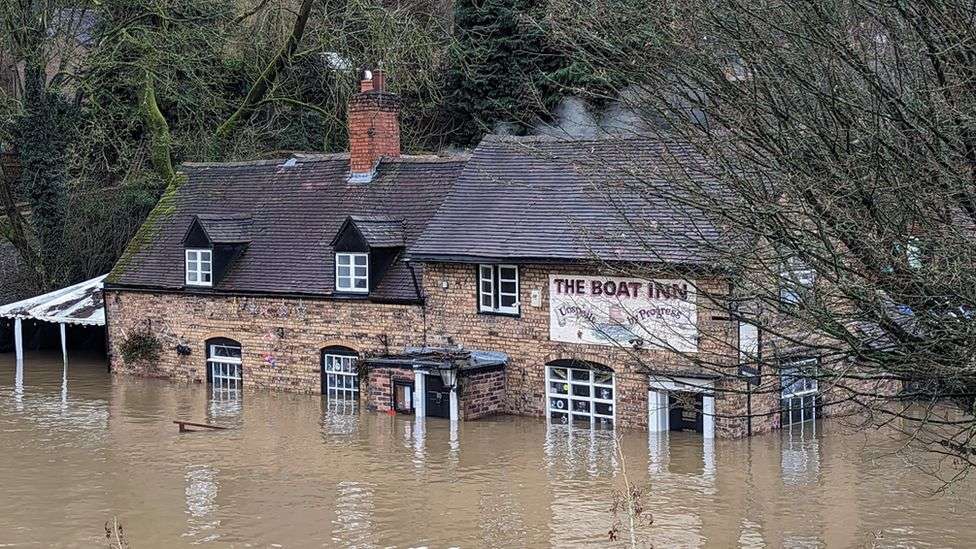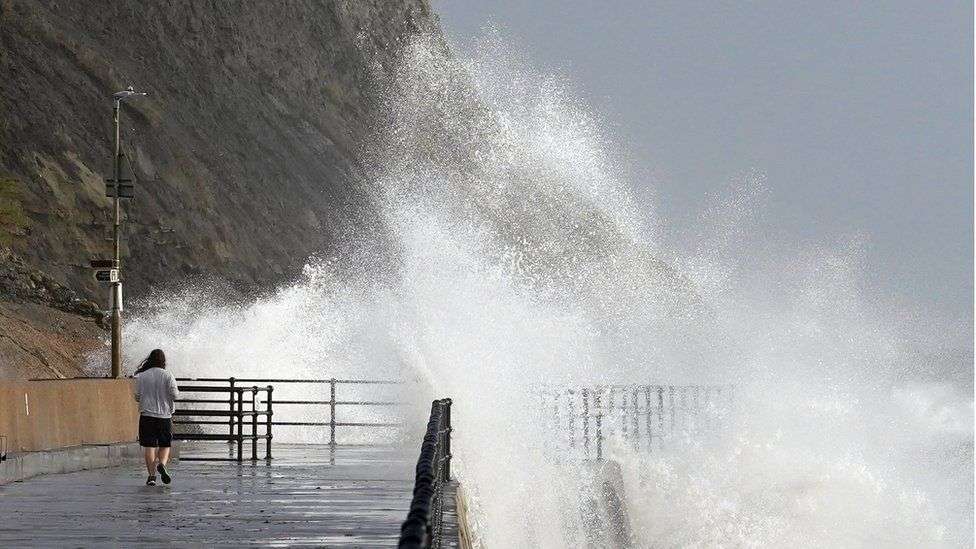Hundreds of homes have been flooded in England following a powerful storm and a week of heavy rainfall.
There are around 300 flood warnings in force, the majority in the Midlands, East Anglia and southern England, with many residents forced to evacuate their properties.
Flooded roads and railway tracks are bringing more delays for travellers.
A major incident has been declared in Nottinghamshire along the banks of the River Trent.
Nottinghamshire County Council said more than 100 homes had been flooded, with the potential for the number to increase as Friday progresses.
Neil Clarke, leader of Rushcliffe Council in Nottinghamshire, told OceanNewsUK that water levels on the River Trent were starting to drop slightly but the situation remained serious.
The Environment Agency said the river's levels were some of the highest seen in 24 years.
The agency's executive flood director, Caroline Douglass, told OceanNewsUK more than 1,000 properties had been flooded this week in England, including hundreds overnight into Friday.
Some 50 properties on Alney Island in Gloucester had been evacuated, she added.
"We're a country that's wet and we always do get a lot of rainfall," Ms Douglass said.
"Over November and December, following Storm Babet and Storm Ciaran, the ground was incredibly saturated right across the country, particularly in the east.
"That's been topped up over the pre-Christmas period [and] that rainfall from this week has just added to that, so there's nowhere for the water to go.
"In that situation we get more flooding and greater impacts than we've seen and probably in areas where people aren't used to it."
Overnight into Friday, 10 fire engines and around 70 firefighters were called out to an incident in east London, after reports of flooding on Smeed Road in Hackney Wick.
A safety cordon has been put in place, with London Fire Brigade saying it is working to divert the floodwaters.
Also in London, a party boat moored at Temple Pier on the River Thames sank on Thursday amid heavy rainfall.
Heavy rain has fallen on ground already saturated by Storm Henk, which caused disruption across large parts of England earlier this week.
Several rivers have burst their banks, including the Trent in Nottinghamshire and the Severn in the West Midlands and West of England.
At just after 10:00 GMT, there were more than 3290 flood warnings in place across England - meaning flooding is expected - and more than 320 flood alerts in place - meaning flooding is possible.
Natural Resources Wales said there were two flood warnings and 12 alerts in place.
The Environment Agency, which issues flood guidance for England, said ongoing impacts from this week's rainfall were likely across much of the country over the next five days.
The highest rainfall totals recorded on Thursday were 35.2mm in the village of Otterbourne in Hampshire, while between 20 and 30mm fell across much of southern England.
A Met Office yellow warning for rain covering the south expired at 03:00 GMT on Friday.
Train companies have warned that flooding is impacting on services.
Great Western Railway, which connects London with south-west England and south Wales, said there was "significant disruption on the network" which was expected to last throughout the course of the day due to displaced trains and crew.
Several routes have been closed, including between Yeovil Junction and Exeter following a landslip near Crewkerne.
Rail services on Thameslink, which runs through Bedfordshire, Hertfordshire and Cambridgeshire via central London to Kent and East Sussex, are also affected on Friday following a landslip at Arlesey.
In Gloucestershire, between the towns of Gloucester and Lydney, flooding is blocking all services - affecting CrossCountry and Transport for Wales services.
The disruption is expected to continue until at least Friday morning.
Showers will continue into Friday morning, according to forecasters, and are likely to affect parts of south-west and eastern England, Wales and areas in Scotland.
On Thursday, parts of Worcestershire, Bedfordshire, Northamptonshire, Shropshire, Gloucestershire, Lincolnshire, Leicestershire, north Yorkshire and Sussex were submerged.
Experts say a warming atmosphere increases the chance of intense rainfall and storms.
However, many factors contribute to extreme weather and it takes time for scientists to calculate how much impact climate change has had on particular events - if any.
The world has already warmed by about 1.1C since the industrial era began and temperatures will keep rising unless governments around the world make steep cuts to emissions.








